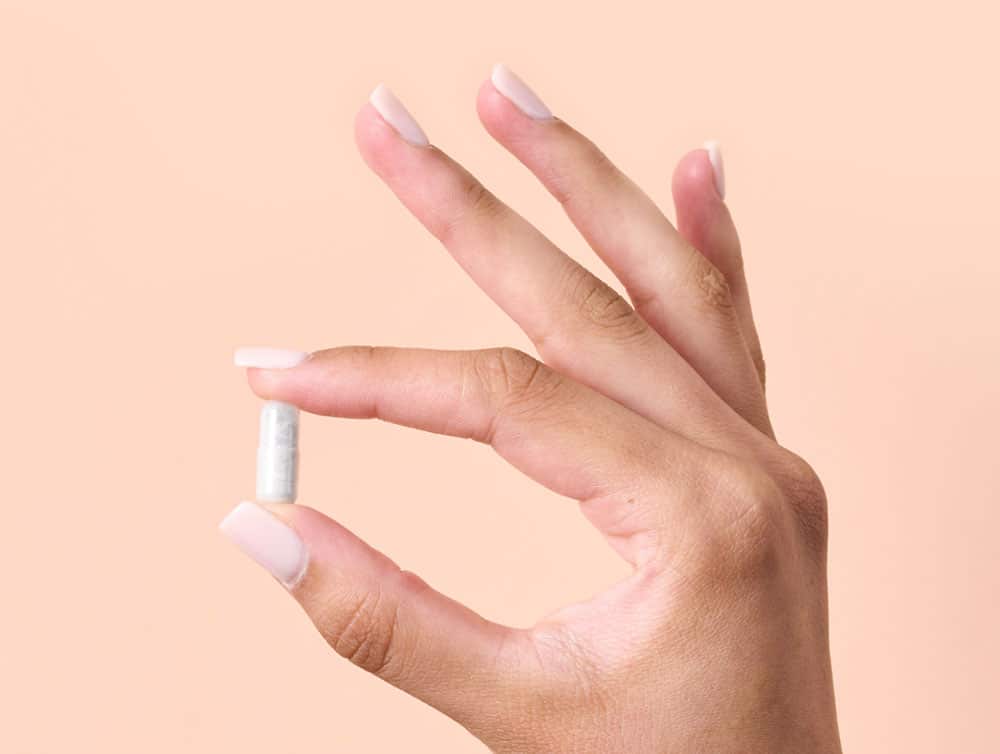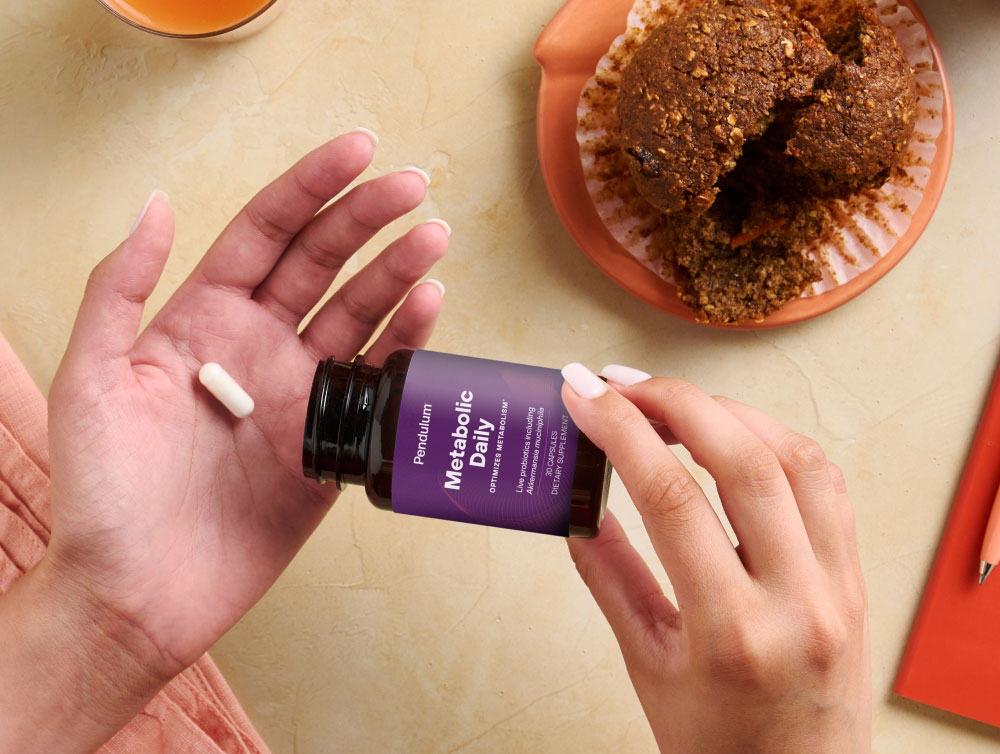
There’s a lot of buzz going around about the new weight loss trend with GLP-1 these days.
The info that’s not making headlines, however, is the fact that you can support your GLP-1 production naturally through diet and probiotics.
But we’re getting a little ahead of ourselves here. First, let’s talk about what GLP-1 is and how this hormone works in your body to assist with metabolism.
What is GLP-1?
GLP-1 is short for glucagon-like peptide-1. With a name that clunky, you can see why it has a nickname. GLP-1 belongs to a family of hormones called incretins that enhance insulin secretion. When you eat, your gut releases GLP-1, which then goes on to trigger a host of downstream metabolic effects like reducing appetite, releasing insulin, and controlling blood sugar[1].
How does GLP-1 help with weight management?
GLP-1 encourages the release of insulin and acts on the appetite centers of your brain to slow stomach emptying and increase satiety, enhancing feelings of fullness during and between meals[2][3][1].
Basically, GLP-1 tells you to put the fork down when you’ve had enough to eat – a pretty good thing when you’re trying to manage your weight. Research suggests that people with obesity may have problems with GLP-1 production which can lead to dysregulation of their appetite. This is why GLP-1 has become a key focus in obesity, diabetes, and general weight management treatments[4].
How can you support GLP-1 production?
Even if you’re not clinically obese or diabetic, supporting GLP-1 production can help with weight control and general metabolic health.
Research shows that eating high-protein foods such as yogurt and whey proteins may increase GLP-1. This is an easy, natural way to stimulate GLP-1 production[5][6].
Another easy way to support GLP-1 is by taking targeted probiotics. Certain beneficial probiotic strains, such as Akkermansia muciniphila, have been shown to stimulate GLP-1 levels. Akkermansia is a novel, next-generation strain associated with a healthy weight and strengthening the gut lining for optimal digestive health[7].
You can learn more about Akkermansia here.
Another probiotic option is Metabolic Daily, a blend of probiotic strains (including Akkermansia) formulated by Ph.D.s and scientists from Johns Hopkins, Harvard, Berkeley, and Stanford. This targeted formula naturally optimizes your metabolism and supports a healthy weight. Along with Akkermansia muciniphila, Metabolic Daily also contains Anaerobutyricum hallii, Clostridium beijerinckii, and Clostridium butyricum, all strains that support GLP-1 production[8][9][10].
In addition, Clostridium beijerinckii, and Clostridium butyricum both produce butyrate, a short-chain fatty acid that’s made in the gut when your bacteria break down dietary fiber. Butyrate is beneficial for blood sugar response, gut permeability, and immune function[11][12].
You can learn more about Metabolic Daily here.
The good news is that the understanding of the critical role GLP-1 plays in maintaining a healthy weight and metabolic health is quickly growing — not only in the healthcare community but in the general population. The even better news is that there are ways to help increase your GLP-1 production yourself.
References
- https://www.yourhormones.info/hormones/glucagon-like-peptide-1/
- Müller, Timo D., et al. “Glucagon-like peptide 1 (GLP-1).” Molecular metabolism 30 (2019): 72-130.
- Holst, Jens Juul. “The physiology of glucagon-like peptide 1.” Physiological reviews 87.4 (2007): 1409-1439.
- Anandhakrishnan, Ananthi, and Márta Korbonits. “Glucagon-like peptide 1 in the pathophysiology and pharmacotherapy of clinical obesity.” World journal of diabetes 7.20 (2016): 572.
- Gillespie, Anna L., et al. “Whey proteins have beneficial effects on intestinal enteroendocrine cells stimulating cell growth and increasing the production and secretion of incretin hormones.” Food chemistry 189 (2015): 120-128.
- Tremblay, Angelo, Caroline Doyon, and Marina Sanchez. “Impact of yogurt on appetite control, energy balance, and body composition.” Nutrition reviews 73.suppl_1 (2015): 23-27.
- Cani, Patrice D., and Claude Knauf. “A newly identified protein from Akkermansia muciniphila stimulates GLP-1 secretion.” Cell Metabolism 33.6 (2021): 1073-1075.
- https://www.sciencedirect.com/topics/agricultural-and-biological-sciences/eubacterium-hallii
- Perraudeau, Fanny, et al. “Improvements to postprandial glucose control in subjects with type 2 diabetes: a multicenter, double blind, randomized placebo-controlled trial of a novel probiotic formulation.” BMJ Open Diabetes Research and Care 8.1 (2020): e001319.
- Wang, Xin?liang, et al. “Engineered probiotics Clostridium butyricum?pMTL007?GLP?1 improves blood pressure via producing GLP?1 and modulating gut microbiota in spontaneous hypertension rat models.” Microbial Biotechnology (2022).
- Perraudeau, Fanny, et al. “Improvements to postprandial glucose control in subjects with type 2 diabetes: a multicenter, double blind, randomized placebo-controlled trial of a novel probiotic formulation.” BMJ Open Diabetes Research and Care 8.1 (2020): e001319.
- Wang, Xin?liang, et al. “Engineered probiotics Clostridium butyricum?pMTL007?GLP?1 improves blood pressure via producing GLP?1 and modulating gut microbiota in spontaneous hypertension rat models.” Microbial Biotechnology (2022).













